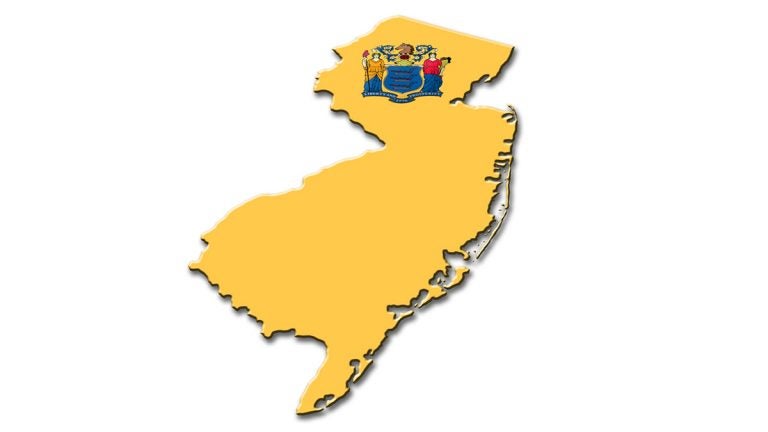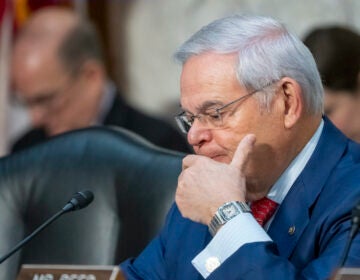No credit downgrade for New Jersey but pensions remain a concern

(Big Stock File photo)
New Jersey has survived its latest budget troubles without suffering any new credit-rating downgrades. That’s good news for a state that has watched its debt grade fall in recent years to the bottom of most state-by-state rankings.
But the reviews of New Jersey’s fiscal health issued by major Wall Street rating agencies, early last week, also underscore the steep budget challenges that the state still faces even as Gov. Chris Christie has emphasized financial reform during his more than six years in office.
And while Christie has tried to make the case more recently that only public-employee benefit cuts stand between New Jersey and fiscal stability, the new evaluations show the state continues to be saddled with a host of other financial problems as well. They include heavy borrowing, slow rate of growth in the state economy, and limited budget reserves to cushion against unexpected expenses or shortfalls.
With the state’s next gubernatorial election now looming in 2017, the new credit analyses also serve as a warning to those seeking to become the next governor, making it clear the job of administering New Jersey’s finances will not be any easy one for years to come.
The rating agencies issued their latest reviews as the state Economic Development Authority readied a bond sale to raise $50 million for biomedical-research facilities. In their respective reviews of the proposed bond issue, Fitch Ratings, Moody’s Investors Service, and S&P Global Ratings all decided to keep New Jersey’s debt grade unchanged. For Fitch and S&P that means New Jersey’s credit was left at an “A” grade, and under Moody’s evaluation system, the state’s credit rating was kept at the “A2” level.
New Jersey just started its new 2017 fiscal year on July 1 with a $34.5 billion spending plan that Christie enacted after using the line-item veto to remove nearly $300 million in additions sought by the Democratic-controlled state Legislature. The fiscal year budget increased the state’s contribution to the pension system by nearly $600 million, accounting for most of the small growth in spending over the prior fiscal year’s $33.8 billion budget.
Christie’s action on the new budget also followed several steps his administration had to take in late May to address a $600 million revenue shortfall, including tapping reserves to prevent a deficit that would have run afoul of the state constitution’s balanced-budget clause.
The governor also remains at odds with legislative leaders over renewing the state’s Transportation Trust Fund, leading to a stalemate that has forced an ongoing shutdown of state-funded road, bridge, and rail projects. Christie issued a new executive order yesterday that will allow his administration to dip into the budget’s general fund to ensure money remains available for essential projects and emergencies once the TTF’s resources run dry.
The state’s credit rating is important because it plays a big role in determining how cheap and easy it is for the government to borrow money from investors for projects that are too big to be funded in a single fiscal year. New Jersey has already had its credit-rating downgraded on three separate occasions by all three major rating agencies during Christie’s tenure.
The governor was asked about the latest batch of credit-rating analyses during a news conference in Trenton earlier this week, and he said the recent stability comes only because his administration has been taking “strong executive action” to keep the budget in balance.
“We’re pleased that it kept us at the same level,” Christie said.
He also said the latest analyses show that the high cost of public-employee pension benefits is “really the only remaining issue for New Jersey, in terms of our fiscal stability.” Christie went on to say Democrats should reconsider a series of benefit reforms that he’s been calling for, including offering public workers less generous healthcare coverage and freezing the current pension system in favor of a new retirement system that would have some features of a 401(k) plan.
“When you continue to have a pension system (where) benefits are out of control and a healthcare system for public employees whose benefits are even more out of control, then you’re never going to get that credit rating to go back up,” Christie said.
But so far, Democratic legislative leaders have not been willing to advance any of Christie’s proposed changes. Public-worker union leaders have also countered that the state’s pension-funding problem is rooted primarily in the governor’s decision to implement $3 billion in business-tax cuts and to offer billions more to corporations in the form of lucrative tax incentives.
Christie worked with Democrats in 2011 to pass a benefits-reform law that called for increased pension contributions from both employees and state government. But his administration has not fully honored that commitment in recent years even as the employees are still being forced to pay more toward their retirements.
The state’s pension-funding problems are outlined in depth in the latest reviews from the credit-rating agencies. All three note that the state will continue to make only partial employer pension contributions, adding to an unfunded liability that totals at least $44 billion.
But the rating agencies also highlighted other longstanding fiscal concerns that have plagued the state budget in recent years in addition to the pension-funding issues that Christie focused on during his news conference earlier this week.
For example, the review issued by Moody’s emphasized the state’s “high debt position” in its discussion of New Jersey’s finances, and Fitch also pointed to the size of the state’s overall debt burden as a continuing concern. The state Department of Treasury’s latest official report on borrowing estimated New Jersey’s bonded debt to be $43.23 billion, up from the $37.7 billion in borrowing recorded the year before Christie took office.
“New Jersey’s debt levels are high for a U.S. state, and ongoing capital demands for school construction, environmental protection, and transportation remain large,” the Fitch review said.
Fitch also noted current budget reserves equal less than 2 percent of planned spending. The review by S&P highlighted a similar concern, saying that even though state tax-revenue sources are prone to volatility, the state budget “carries limited reserves to mitigate potential volatility.”
Carol Spain, an analyst with S&P, also pointed to New Jersey’s slow economic growth since the end of the Great Recession as another lingering issue.
“Given that more than seven years have passed since the official start of the economic recovery, the state’s economic growth continues to lag the nation, contributing to growth in revenues that has not kept pace with expenditure growth,” she said.
________________________________________________
NJ Spotlight, an independent online news service on issues critical to New Jersey, makes its in-depth reporting available to NewsWorks.
WHYY is your source for fact-based, in-depth journalism and information. As a nonprofit organization, we rely on financial support from readers like you. Please give today.




